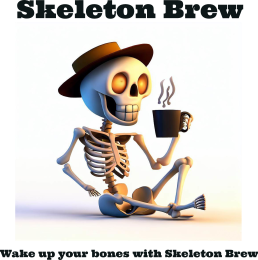Crafting the Perfect Cup: Mastering Brewing Techniques to Avoid Common Pitfalls
In the world of coffee brewing, the journey to crafting the perfect cup is filled with nuances and challenges. Whether you're a seasoned coffee aficionado or a newcomer to the coffee culture, you've likely encountered the two most common coffee woes: a brew that's too weak or one that's unpleasantly bitter. Yet, the realm of coffee brewing pitfalls extends beyond these familiar issues. Today, we explore a comprehensive guide to navigating these obstacles, ensuring every cup you brew is nothing short of extraordinary.

The Plight of Weak Coffee
Weak coffee can leave much to be desired, offering only a faint echo of the rich, immersive experience you sought. This often results from:
1. Coffee-to-Water Ratio:
A fundamental aspect of brewing, the right ratio of coffee to water is crucial. A standard guideline is 1 to 2 tablespoons of coffee per 6 ounces of water, though experimentation is key to finding your perfect balance.
2. Grind Size:
Coarsely ground coffee can lead to under-extraction, resulting in a weak flavor. Medium to medium-fine grinds are generally recommended for most brewing methods.
3. Water Temperature:
Optimal flavor extraction requires water temperatures between 195°F to 205°F. Water that's not hot enough will fail to fully extract the coffee's flavors.
The Bitter Taste of Over-Extraction
Conversely, a cup that's too bitter can be equally disappointing. Bitterness often indicates over-extraction:
1. Grind Size:
A too-fine grind for your brewing method can cause over-extraction. If bitterness is an issue, adjust to a coarser grind.
2. Brew Time:
Reduce brew time to avoid extracting the bitter compounds. Adjust by 30 seconds to a minute, based on your brewing method.
3. Water Quality:
Hard water, rich in minerals, can enhance bitterness. Consider using filtered or bottled water for a smoother taste.
Additional Pitfalls to Avoid
Mastering coffee brewing also means being aware of other common mistakes:
1. Improper Storage:
Stale coffee results from improper storage. Keep beans in an airtight container away from light and heat. Freshly grinding beans before brewing also preserves flavor.
2. Mismatched Coffee and Brewing Method:
The right coffee type should match your brewing method. Espresso roasts may overpower in a drip coffee maker, while light roasts might underperform in an espresso machine.
3. Ignoring Water Quality:
The taste and odor of tap water can affect your brew. Using filtered or bottled water can significantly improve the taste.
4. Neglecting Equipment Maintenance:
Coffee oils and mineral buildup can impact flavor. Clean your equipment regularly following the manufacturer's instructions.
5. Overlooking Water Temperature:
Correct water temperature is vital for balanced extraction. Water that's too hot or too cold can lead to flavor imbalance.
Embracing the Coffee Journey
Achieving coffee perfection is a process of continuous learning and adjustment. The nuances of brewing invite you to experiment, refine, and personalize your approach. Keep a journal of your coffee adventures, noting what works and what doesn't, and remember: the quest for the perfect cup is as rewarding as the coffee itself. Here's to many mornings of impeccable, invigorating coffee!
